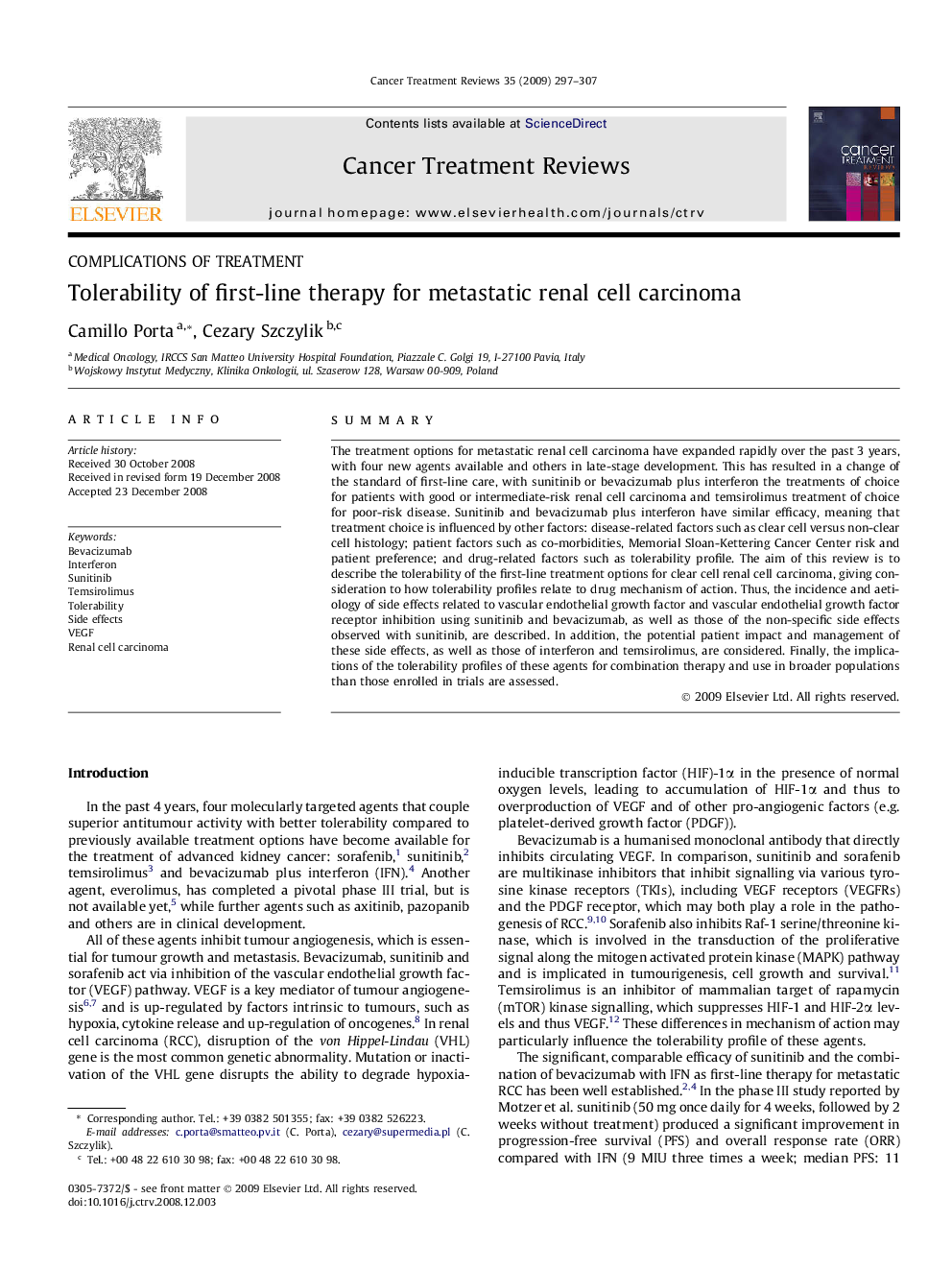| Article ID | Journal | Published Year | Pages | File Type |
|---|---|---|---|---|
| 3980426 | Cancer Treatment Reviews | 2009 | 11 Pages |
SummaryThe treatment options for metastatic renal cell carcinoma have expanded rapidly over the past 3 years, with four new agents available and others in late-stage development. This has resulted in a change of the standard of first-line care, with sunitinib or bevacizumab plus interferon the treatments of choice for patients with good or intermediate-risk renal cell carcinoma and temsirolimus treatment of choice for poor-risk disease. Sunitinib and bevacizumab plus interferon have similar efficacy, meaning that treatment choice is influenced by other factors: disease-related factors such as clear cell versus non-clear cell histology; patient factors such as co-morbidities, Memorial Sloan-Kettering Cancer Center risk and patient preference; and drug-related factors such as tolerability profile. The aim of this review is to describe the tolerability of the first-line treatment options for clear cell renal cell carcinoma, giving consideration to how tolerability profiles relate to drug mechanism of action. Thus, the incidence and aetiology of side effects related to vascular endothelial growth factor and vascular endothelial growth factor receptor inhibition using sunitinib and bevacizumab, as well as those of the non-specific side effects observed with sunitinib, are described. In addition, the potential patient impact and management of these side effects, as well as those of interferon and temsirolimus, are considered. Finally, the implications of the tolerability profiles of these agents for combination therapy and use in broader populations than those enrolled in trials are assessed.
